
Ypres: A Tapestry of History and Resilience
Ypres, a charming city in the heart of Belgium, is a place where history comes alive. Known for its significant role in World War I, Ypres is home to stunning memorials, museums, and cemeteries that honor the fallen soldiers. The Menin Gate is particularly moving, with its daily Last Post ceremony paying tribute to the countless lives lost. This poignant tradition has continued since 1928, offering visitors a moment of reflection and remembrance. Beyond its historical significance, Ypres is a city of great beauty and charm. The city center is dominated by the impressive Cloth Hall, a UNESCO World Heritage site that dates back to the 13th century. This stunning Gothic building now houses the In Flanders Fields Museum, which provides a deep and insightful look into the war's impact on the region and its people. Strolling through the cobblestone streets, visitors can also enjoy quaint cafes, artisan shops, and delightful local cuisine. Nature lovers will find solace in the serene landscapes surrounding Ypres. The city's proximity to the Belgian countryside offers ample opportunities for cycling and walking tours. The Ypres Salient, a battlefield area now covered in peaceful fields and forests, is a must-visit for those interested in both history and nature. With its blend of poignant history and picturesque beauty, Ypres is a destination that leaves a lasting impression on all who visit.
Local tips in Ypres
- Attend the Last Post Ceremony at the Menin Gate, held every evening at 8 PM.
- Visit the In Flanders Fields Museum for an immersive experience of World War I history.
- Explore the Cloth Hall and its surrounding square for a taste of Ypres' medieval charm.
- Take a guided tour of the Ypres Salient to understand the battlefield's historical significance.
- Rent a bike and explore the scenic countryside around Ypres.
Ypres: A Tapestry of History and Resilience
Ypres, a charming city in the heart of Belgium, is a place where history comes alive. Known for its significant role in World War I, Ypres is home to stunning memorials, museums, and cemeteries that honor the fallen soldiers. The Menin Gate is particularly moving, with its daily Last Post ceremony paying tribute to the countless lives lost. This poignant tradition has continued since 1928, offering visitors a moment of reflection and remembrance. Beyond its historical significance, Ypres is a city of great beauty and charm. The city center is dominated by the impressive Cloth Hall, a UNESCO World Heritage site that dates back to the 13th century. This stunning Gothic building now houses the In Flanders Fields Museum, which provides a deep and insightful look into the war's impact on the region and its people. Strolling through the cobblestone streets, visitors can also enjoy quaint cafes, artisan shops, and delightful local cuisine. Nature lovers will find solace in the serene landscapes surrounding Ypres. The city's proximity to the Belgian countryside offers ample opportunities for cycling and walking tours. The Ypres Salient, a battlefield area now covered in peaceful fields and forests, is a must-visit for those interested in both history and nature. With its blend of poignant history and picturesque beauty, Ypres is a destination that leaves a lasting impression on all who visit.
When is the best time to go to Ypres?
Iconic landmarks you can’t miss
Menin Gate
Explore the Menin Gate in Ypres, a poignant war memorial honoring the fallen soldiers of World War I, and experience the daily Last Post ceremony.
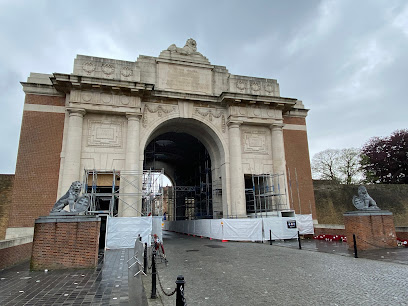
In Flanders Fields Museum
Explore the In Flanders Fields Museum in Ypres to uncover the poignant history of World War I through immersive exhibits and heartfelt stories.
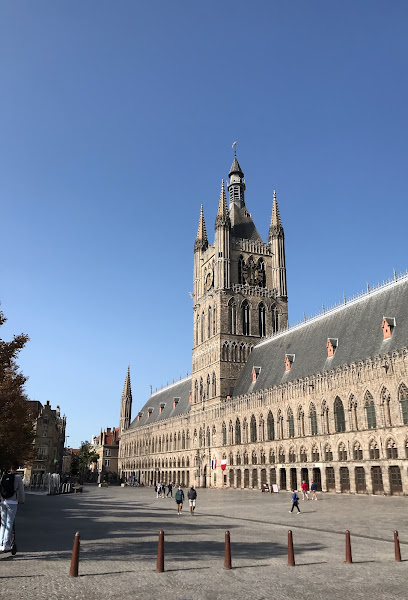
Cloth Hall
Explore the Cloth Hall in Ypres, a historical masterpiece that embodies the spirit of resilience and history, offering insight into World War I.
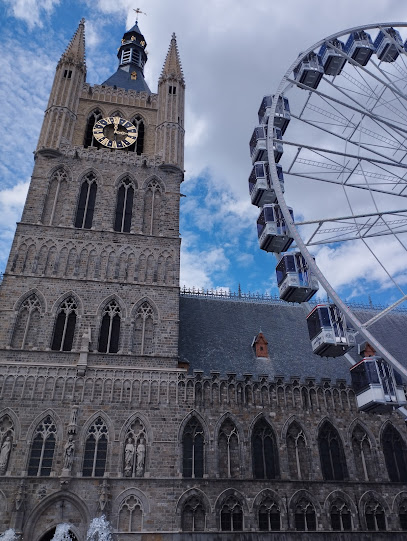
Sanctuary Wood Museum
Explore the Sanctuary Wood Museum in Ypres, a powerful historical site preserving WWI trenches and artifacts that honor the memory of fallen soldiers.
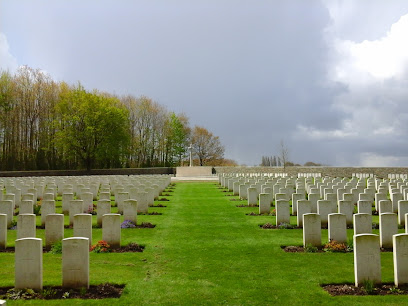
Yorkshire Trench and Dug Out
Discover the Yorkshire Trench and Dug Out in Ypres, a historical site that brings the realities of World War I trench warfare to life for visitors.
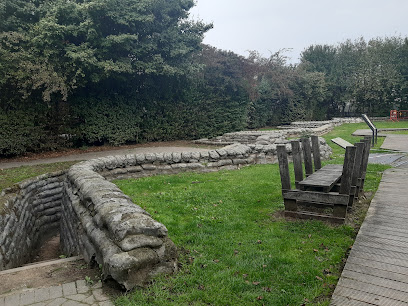
Mine attack 1917: Hill 60 (Hill 60 A)
Experience the poignant history of Hill 60, a memorial park near Ypres that beautifully illustrates the sacrifices of World War I through its preserved landscapes.
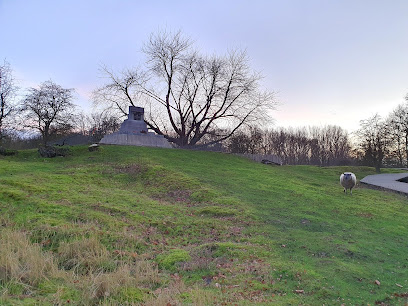
Hill 62 (Sanctuary Wood) Canadian Memorial
Explore Hill 62, a serene memorial park in Ypres, honoring the bravery of Canadian soldiers in World War I, offering a reflective experience for every visitor.
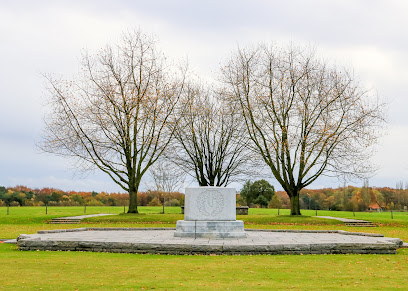
Yper Museum
Explore the Yper Museum in Ieper, Belgium, for an immersive journey through history and the legacy of World War I.
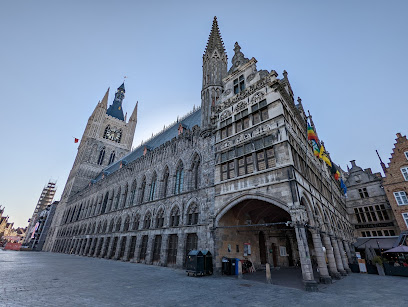
Ypres War Victims Monument
Explore the Ypres War Victims Monument, a poignant memorial honoring those who sacrificed their lives in the World Wars, set in the historic city of Ypres, Belgium.
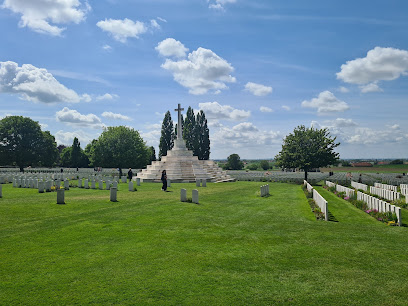
St George's Memorial Church, Ypres
Discover St George's Memorial Church in Ypres, a memorial of peace and reflection dedicated to the fallen heroes of World War I.
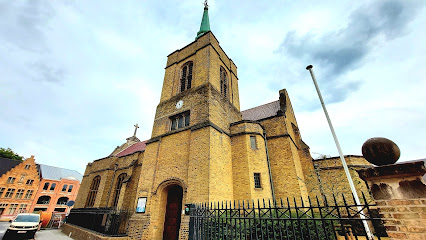
Welsh National Memorial Park
Explore Welsh National Memorial Park, a serene tribute to valor and remembrance, nestled in the picturesque landscapes of Langemark-Poelkapelle, Belgium.
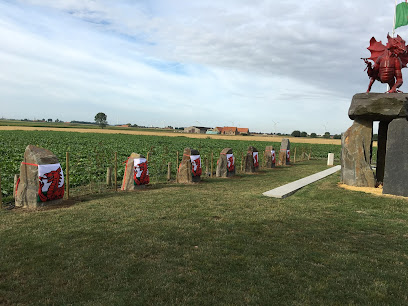
Essex Farm Cemetery
Discover the profound history and serene beauty of Essex Farm Cemetery, where the sacrifices of World War I soldiers are honored in Ypres, Belgium.
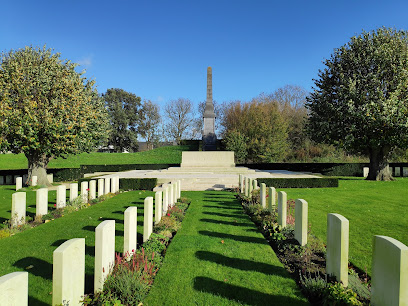
Merghelinck Museum
Explore the Merghelynck Museum in Ypres, where the rich art and history of the region come to life through captivating exhibits.
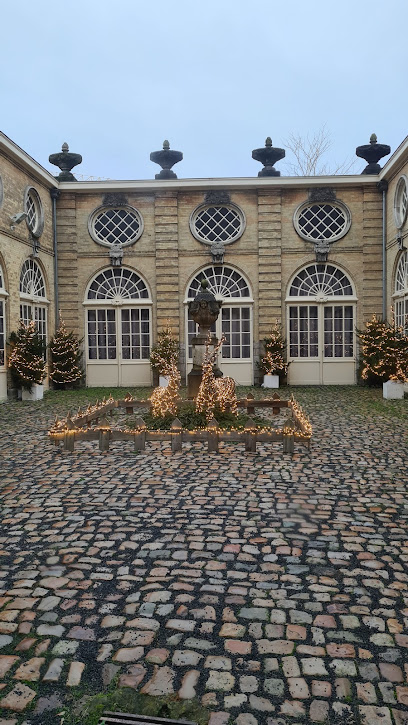
Frezenberg Ridge Scottish Memorial
Explore the Frezenberg Ridge Scottish Memorial, a poignant tribute to bravery and sacrifice during World War I, nestled in the serene landscapes of Zonnebeke, Belgium.
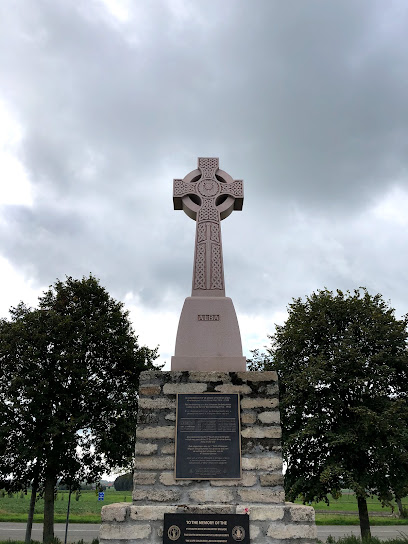
Front Line Hooghe
Explore Front Line Hooghe in Ypres, Belgium, a historic landmark that reflects the bravery and sacrifice of World War I soldiers.
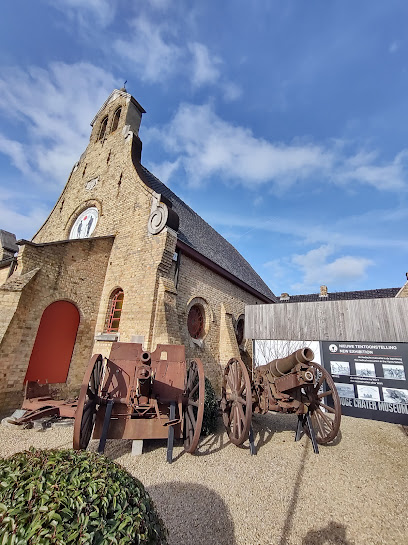
Unmissable attractions to see
Pierre Mauroy Stadium
Discover Pierre Mauroy Stadium in Villeneuve-d'Ascq, a premier venue for thrilling sports events and spectacular concerts all year round.
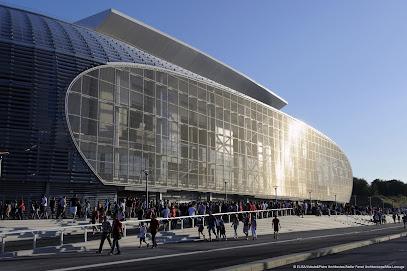
Zoo de Lille
Discover diverse wildlife in the heart of Lille at the enchanting Zoo de Lille, where conservation meets family fun in a beautiful park setting.
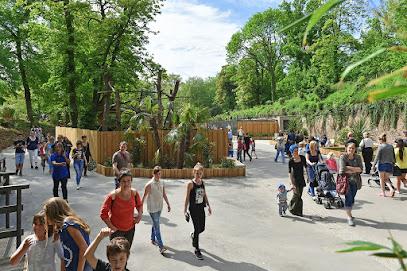
Lille Grand Palais
Discover Lille Grand Palais, the cultural heart of Lille, France, hosting dynamic events and exhibitions in a stunning modern venue.
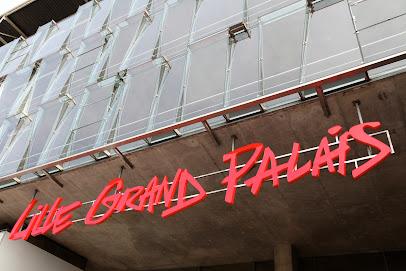
Palais des Beaux Arts
Immerse yourself in European art at Palais des Beaux Arts, Lille's premier museum showcasing masterpieces from the Middle Ages to the 20th century.
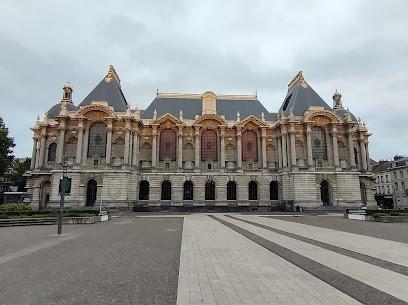
In Flanders Fields Museum
Explore the In Flanders Fields Museum in Ypres, where history comes alive through immersive exhibits on World War I and its profound impact on society.
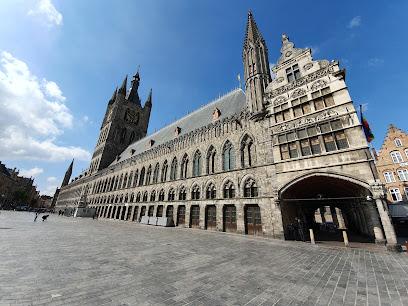
Leopoldpark
Explore the lush landscapes and serene beauty of Leopold Park, a top tourist attraction in Ostend, Belgium, perfect for relaxation and family fun.
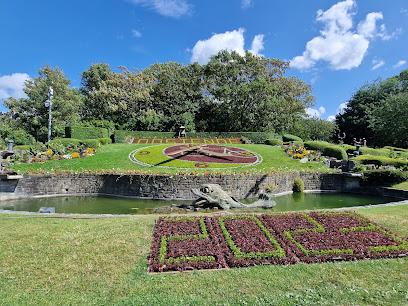
Notre-Dame-de-la-Treille Cathedral
Discover the stunning Notre-Dame-de-la-Treille Cathedral in Lille, France, where modern architecture meets historic charm and vibrant artistry.
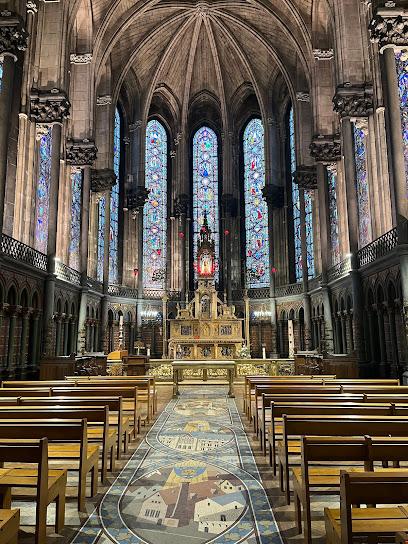
Kursaal Oostende
Experience the vibrant culture and stunning seaside views at Kursaal Oostende, a premier event venue and performing arts center in Belgium.
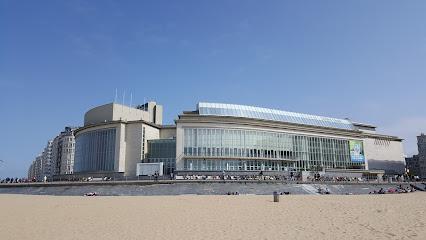
Museum Dunkerque 1940 Operation Dynamo
Explore the remarkable history of Dunkirk at the Museum Dunkerque 1940 Operation Dynamo, where the story of bravery and survival during WWII comes to life.
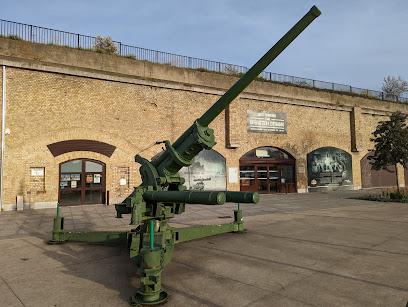
Memorial Museum Passchendaele 1917
Explore the profound legacy of World War I at Memorial Museum Passchendaele 1917, a must-see destination for history lovers and curious travelers.
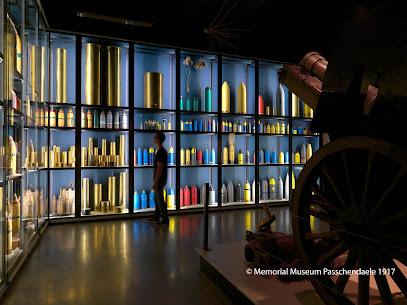
de Saint-Omer Public Garden
Discover the enchanting de Saint-Omer Public Garden, a serene retreat in the heart of Saint-Omer, where nature and history beautifully intertwine.
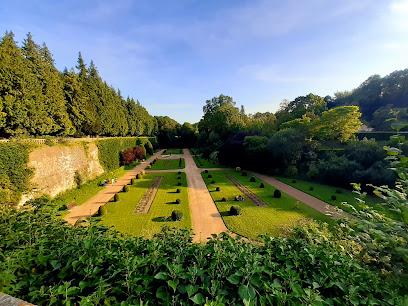
Blockhaus d'Éperlecques
Discover the historic Blockhaus d'Éperlecques in France, a World War II monument featuring impressive architecture and rich stories of wartime resilience.
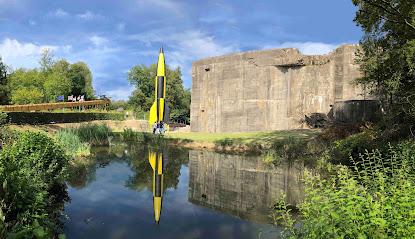
Parc de la Citadelle
Experience the beauty and tranquility of Parc de la Citadelle, an iconic park in Lille, where history meets nature in a serene urban setting.
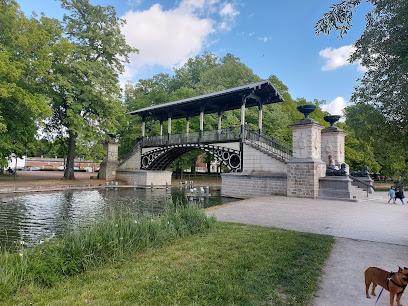
Church of Saint Peter and Saint Paul
Explore the stunning Church of Saint Peter and Saint Paul in Ostend, a captivating blend of Gothic and Romanesque architecture, rich in history and spirituality.
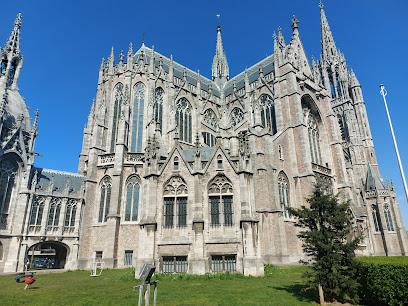
Lille Opera
Discover the enchanting Lille Opera, a cultural jewel in Lille, France, showcasing mesmerizing performances and stunning neoclassical architecture.
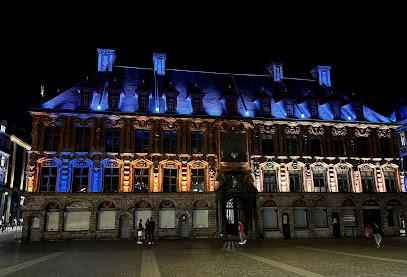
Essential places to dine
Marktcafé Les Halles
Experience exquisite tapas and vibrant dining at Marktcafé Les Halles in Ypres - where local flavors meet international cuisine.
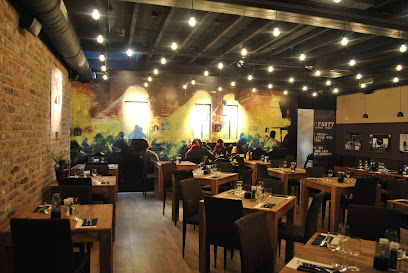
In 't Klein Stadhuis
Experience authentic Belgian cuisine at In 't Klein Stadhuis in Ypres, where tradition meets taste in a cozy setting.
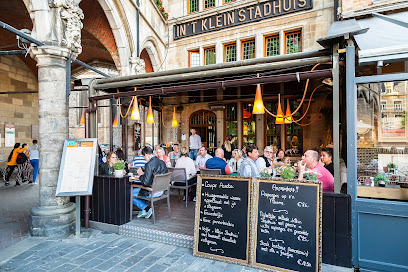
Hill 60 Restaurant
Experience authentic Belgian cuisine at Hill 60 Restaurant in Ypres - where culinary delight meets historical significance.
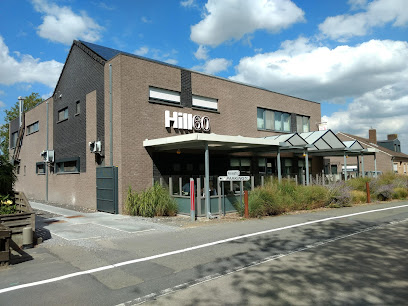
Pacific Eiland Restaurant
Experience gourmet dining at Pacific Eiland Restaurant in Ypres, where exquisite cuisine meets breathtaking views.
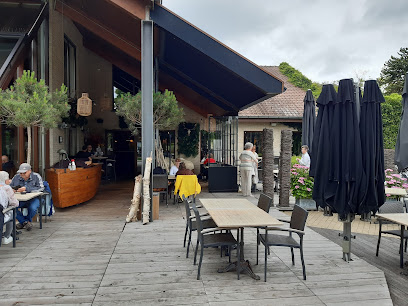
Ypresburger
Experience authentic Belgian cuisine at Ypresburger, where local flavors meet modern culinary artistry in the heart of historic Ypres.
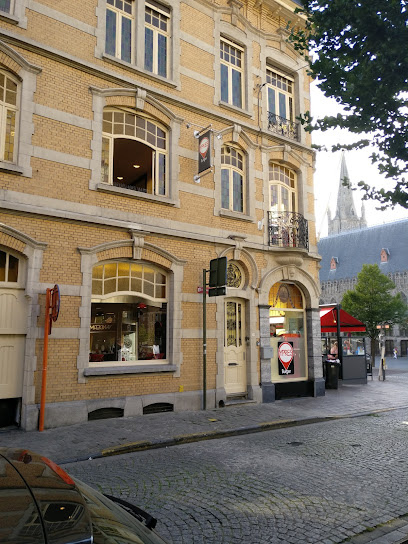
Restaurant De Palingbeek bv
Experience authentic Belgian cuisine at Restaurant De Palingbeek in Ypres – where local flavors meet warm hospitality.
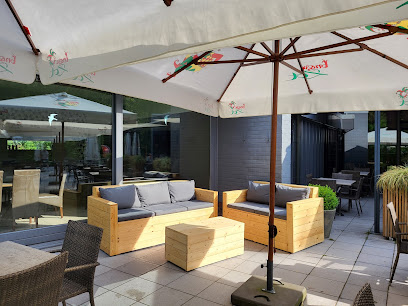
Dépot
Savor authentic Belgian cuisine at Dépot in Ypres—where tradition meets taste in a charming setting.
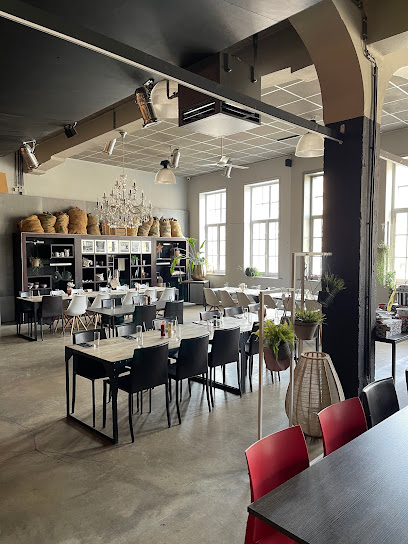
De Fonderie
Discover De Fonderie: A delightful brasserie in Ypres serving authentic Belgian cuisine made from fresh local ingredients.
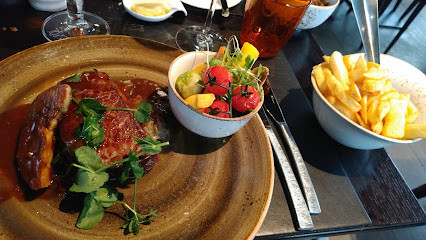
Vivaldi Restaurant & Tea Room
Discover the culinary delights at Vivaldi Restaurant & Tea Room in Ypres – where local flavors meet cozy ambiance.
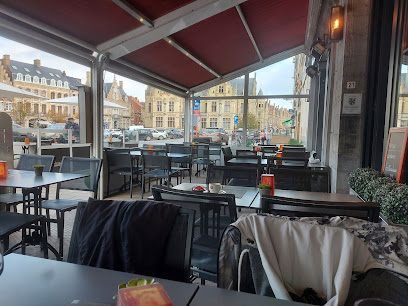
Hotel Tearoom New Regina
Experience Belgian hospitality at Hotel Tearoom New Regina in Ypres - where culinary delight meets historic charm.

Captain cook
Experience authentic Belgian cuisine at Captain Cook in Ypres – where local flavors meet cozy ambiance.
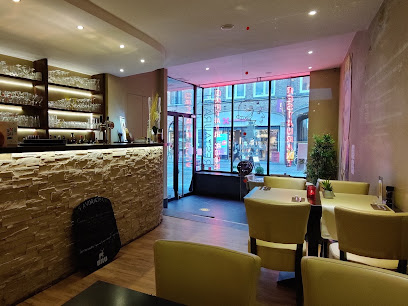
Den Olifant Ieper
Discover authentic Belgian flavors at Den Olifant in Ypres – where culinary tradition meets warm hospitality.
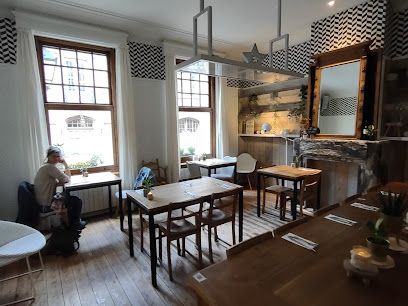
Hostellerie Saint Nicolas
Experience the rich flavors of Belgian and French cuisine at Hostellerie Saint Nicolas while exploring the historic city of Ypres.
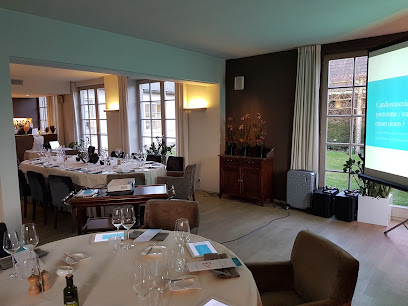
Resto Milano
Experience authentic Italian cuisine at Resto Milano in Ypres - where tradition meets taste in a charming setting.
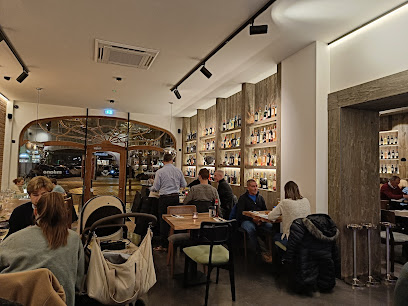
Brasserie Central
Discover authentic Belgian cuisine at Brasserie Central in Ypres, where tradition meets flavor in a charming setting.
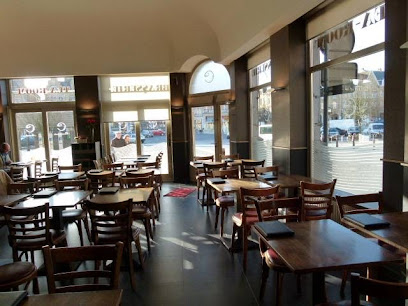
Markets, malls and hidden boutiques
Delhaize Ieper
Discover the flavors of Belgium at Delhaize Ieper, your go-to supermarket for fresh produce, local specialties, and gourmet delights in Ypres.
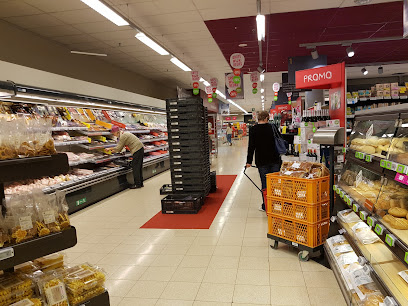
Mimi's koffie- en theehuis
Discover Mimi's Koffie- en Theehuis in Ypres, a cozy coffee shop and tea house perfect for relaxing and enjoying delicious beverages.
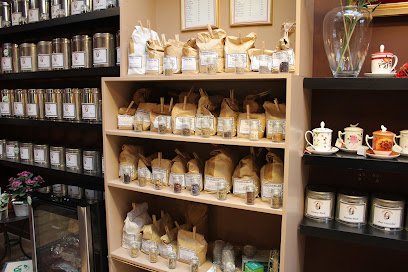
C&A
Explore a world of fashion at C&A in Ypres, offering stylish clothing for the whole family at affordable prices.
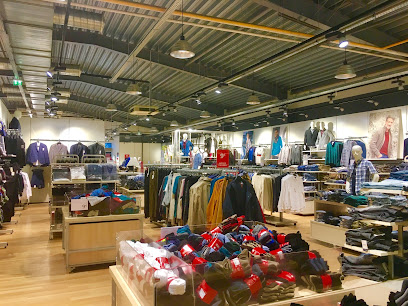
Il Gusto d'Italia
Experience the authentic taste of Italian gelato at Il Gusto d'Italia in Ypres, where every scoop is a sweet journey to Italy.
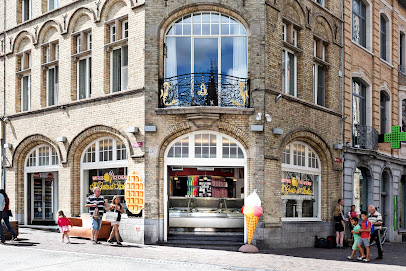
HEMA
Explore HEMA in Ypres for unique gifts, stylish home decor, and local treasures that capture the essence of this historic city.
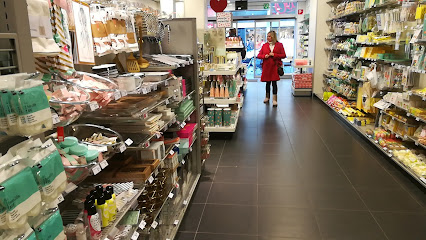
eco discount
Discover Eco Discount in Ypres, your go-to store for eco-friendly home goods and sustainable living essentials.
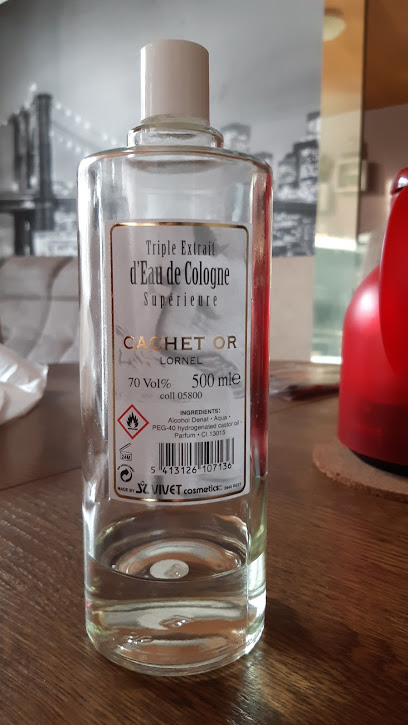
Orange Shop Ieper
Stay connected while exploring Ypres with Orange Shop's wide range of mobile solutions and friendly service.
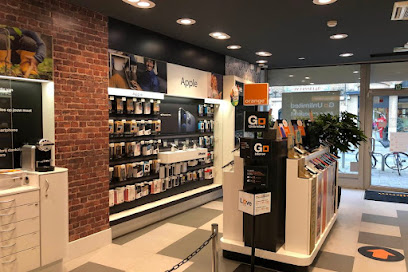
The Times
Discover The Times Pub in Ypres, where local brews and a vibrant atmosphere meet Belgian hospitality.
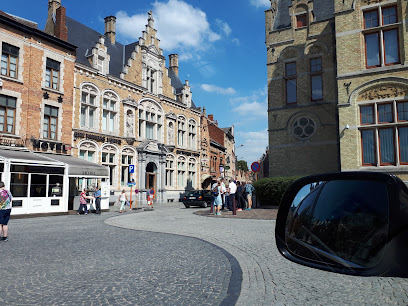
Bristol Ieper
Discover the best in footwear and fashion at Bristol Ieper, a stylish shopping destination in Ypres offering shoes, clothing, and accessories for everyone.
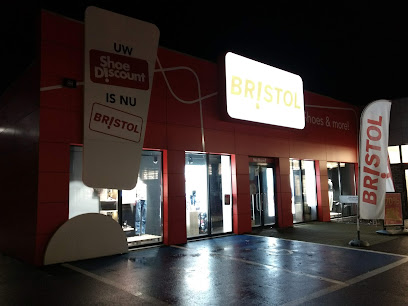
Artex
Explore the vibrant fashion scene at Artex in Ypres, offering a wide range of clothing for the entire family, from stylish men's wear to adorable baby outfits.
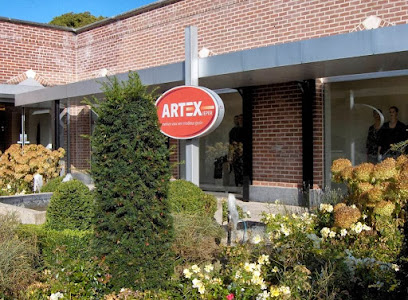
Carrefour market IEPER
Explore the vibrant Carrefour Market Ieper for fresh local produce, artisanal bakery delights, and a taste of Ypres' culinary culture.
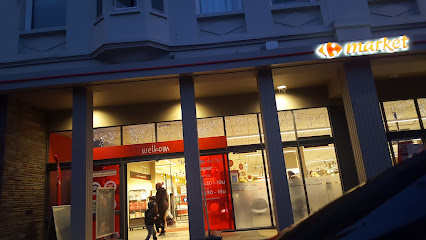
ZPS Woman's fashion & trends
Explore the latest trends in women's and youth fashion at ZPS Woman's Fashion & Trends, a stylish shopping haven in Ypres, Belgium.
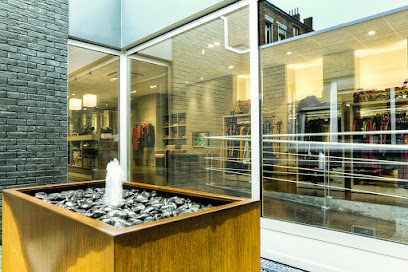
Salient Tours & The British Grenadier Bookshop
Discover the historical treasures of Ypres at Salient Tours & The British Grenadier Bookshop - a literary gem and tour operator in one.
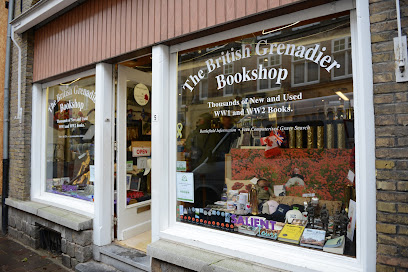
Veritas - Ieper
Explore Veritas in Ypres for a unique blend of fashion accessories, children's clothing, and crafting supplies, perfect for all ages and interests.
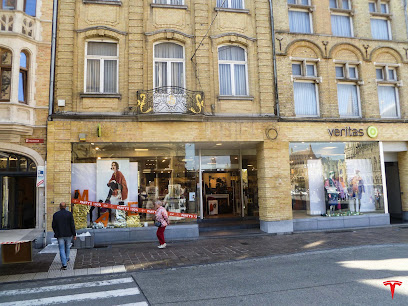
Chez Marie
Discover gourmet delights and unique gifts at Chez Marie, the charming gift shop in Ypres that celebrates local craftsmanship.
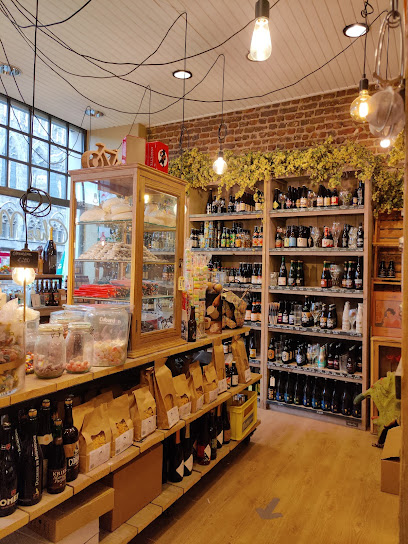
Essential bars & hidden hideouts
St Arnoldus
Experience the taste of Belgium at St Arnoldus, a cozy bar and café in Ypres serving local beers and delicious bites in a warm atmosphere.
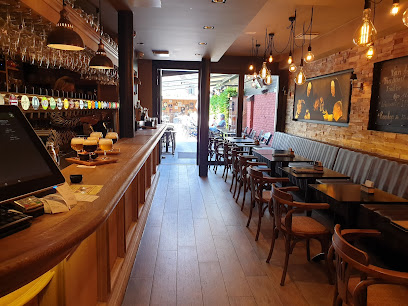
Kaffee Bazaar
Discover the warm and vibrant ambiance of Kaffee Bazaar, a must-visit bar in Ypres offering exceptional drinks and a lively atmosphere.
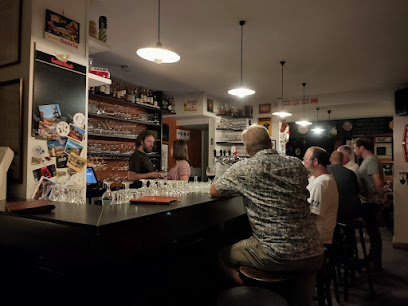
Ben's Bar & Grill
Discover the culinary delights of Ben's Bar & Grill in Ypres, where grilled perfection meets a vibrant bar atmosphere for an unforgettable dining experience.
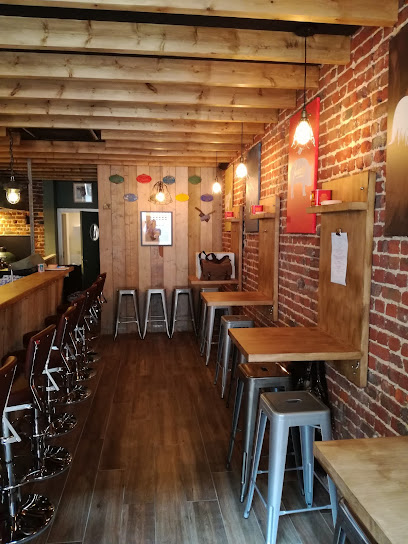
The Times
Experience the charm of Ypres at The Times, a pub that offers a warm atmosphere, local beers, and a taste of Belgian culture.
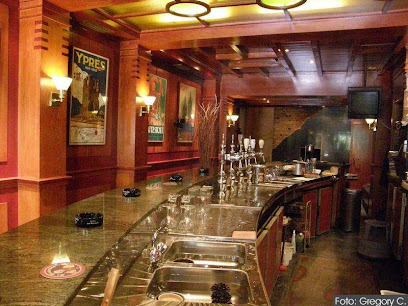
Øl - Tankbier BV
Discover a vibrant bar in Ypres, Belgium, offering a wide selection of craft beers in a cozy atmosphere perfect for relaxation.
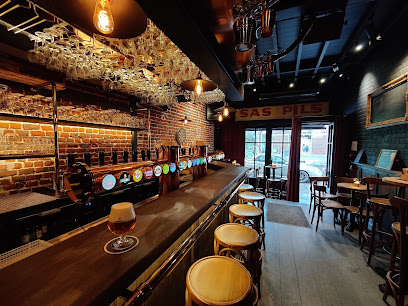
Charlie Brown's
Discover Ypres' nightlife at Charlie Brown's Cocktail Bar, where creative cocktails and a vibrant atmosphere await every visitor.
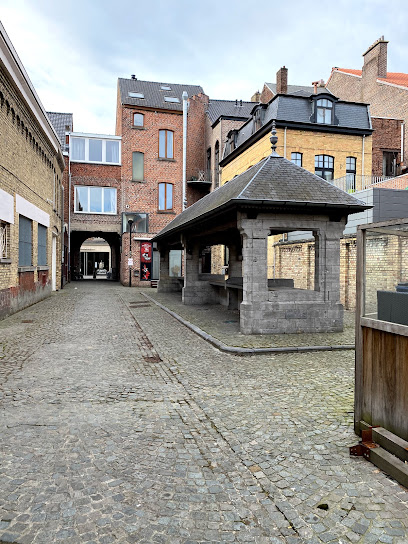
Ypra Inn
Experience the charm of Ypres at Ypra Inn, where local beers and warm hospitality meet in a historic setting.
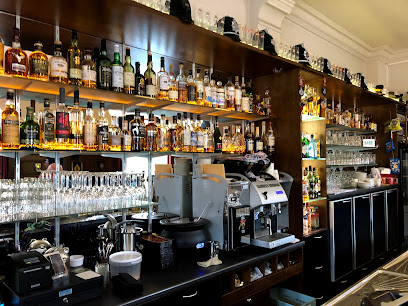
De Vage Belofte - Ieper
Experience the local charm and vibrant atmosphere at De Vage Belofte, the perfect bar to unwind in Ieper, Belgium.
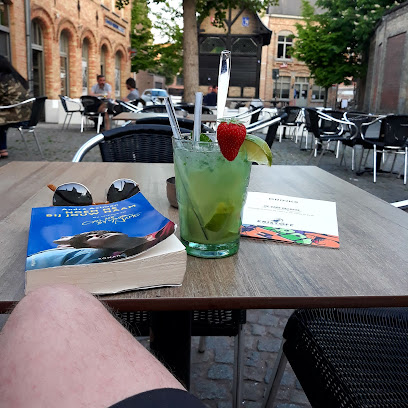
't Genoegen - Ieper
Experience the warmth and charm of 't Genoegen, a cozy bar in Ieper, perfect for unwinding with drinks after exploring the city's rich history.
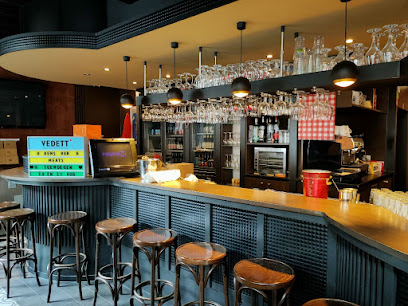
De Afspraak - Ieper
Experience the charm of Ieper at De Afspraak, where great drinks and warm hospitality meet in a cozy pub atmosphere.
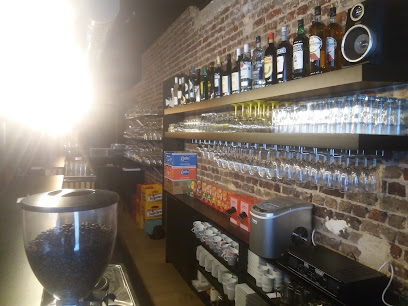
De Margriet
Discover the enchanting atmosphere of De Margriet, a cozy bar in Ypres, offering a delightful selection of local drinks and a welcoming ambiance.
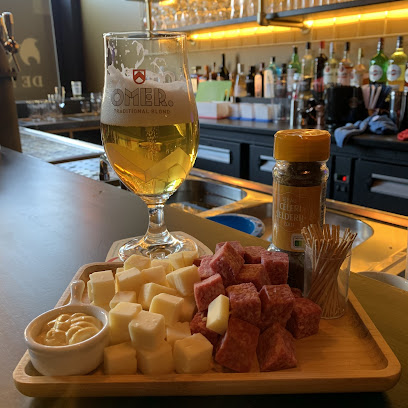
De Mande
Discover De Mande, a cozy bar in Ypres where local charm meets historical ambiance, perfect for unwinding after a day of exploration.
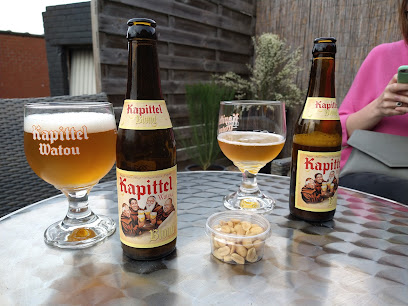
Sherlock Loungebar
Experience the cozy ambiance and unique drink selection at Sherlock Loungebar, the ideal spot for relaxation in historic Ypres.
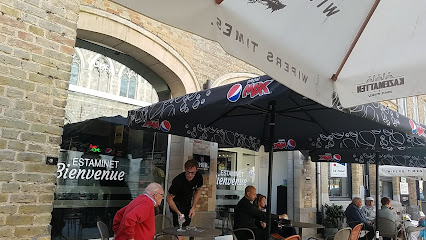
Museum Cafe
Discover the rich history of Ypres at Museum Cafe, where local flavors meet a charming atmosphere in the heart of the city.
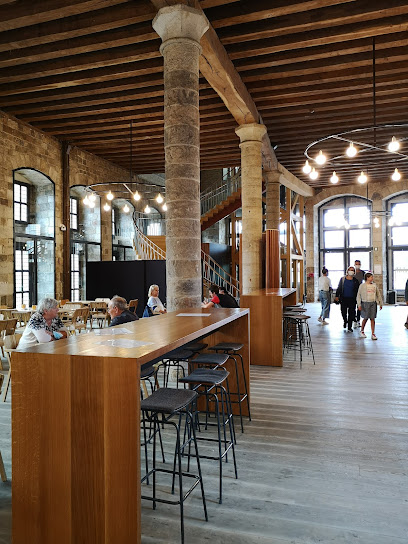
Local Phrases
-
- HelloHallo
[ha-lo] - GoodbyeTot ziens
[tot zyens] - YesJa
[ya] - NoNee
[nee] - Please/You're welcomeAlstublieft
[al-stu-bleeft] - Thank youDank je
[dank ye] - Excuse me/SorrySorry
[so-ree] - How are you?Hoe gaat het?
[hu gaht het] - Fine. And you?Goed. En met jou?
[ghut. en met yow] - Do you speak English?Spreekt u Engels?
[sprekt u eng-els] - I don't understandIk begrijp het niet
[ik buh-grayp het neet]
- HelloHallo
-
- I'd like to see the menu, pleaseMag ik de menukaart zien, alstublieft
[mag ik de me-nu-kart zeen, al-stu-bleeft] - I don't eat meatIk eet geen vlees
[ik ayt khayn vleys] - Cheers!Proost!
[prohst] - I would like to pay, pleaseMag ik betalen, alstublieft
[mag ik buh-ta-len, al-stu-bleeft]
- I'd like to see the menu, pleaseMag ik de menukaart zien, alstublieft
-
- Help!Help!
[help] - Go away!Ga weg!
[ga vekh] - Call the Police!Bel de politie!
[bel de po-lee-see] - Call a doctor!Bel een dokter!
[bel ayn dok-ter] - I'm lostIk ben verdwaald
[ik ben vair-dvahld] - I'm illIk ben ziek
[ik ben zyek]
- Help!Help!
-
- I'd like to buy...Ik zou graag willen kopen...
[ik zou khrahg vil-len koh-pen] - I'm just lookingIk kijk alleen maar
[ik kayk al-leyn mar] - How much is it?Hoeveel kost het?
[hu-vayl kost het] - That's too expensiveDat is te duur
[dat is tuh deur] - Can you lower the price?Kan u de prijs verlagen?
[kan u de preys ver-lah-ghen]
- I'd like to buy...Ik zou graag willen kopen...
-
- What time is it?Hoe laat is het?
[hu laht is het] - It's one o'clockHet is een uur
[het is ayn oor] - Half past (10)Half tien
[half teen] - MorningOchtend
[okh-tent] - AfternoonNamiddag
[nah-mid-dahkh] - EveningAvond
[ah-vohnt] - YesterdayGisteren
[khis-tuh-ren] - TodayVandaag
[vahn-dahkh] - TomorrowMorgen
[mor-khen] - 1Een
[ayn] - 2Twee
[tveh] - 3Drie
[dree] - 4Vier
[veer] - 5Vijf
[vayf] - 6Zes
[zehs] - 7Zeven
[zeh-ven] - 8Acht
[ahkht] - 9Negen
[nay-khen] - 10Tien
[teen]
- What time is it?Hoe laat is het?
-
- Where's a/the...?Waar is een/de...?
[vahr is ayn/de] - What's the address?Wat is het adres?
[vat is het ah-dres] - Can you show me (on the map)?Kunt u mij tonen (op de kaart)?
[kunt u may toh-nen (op de kart)] - When's the next (bus)?Wanneer is de volgende (bus)?
[ven-er is de vol-gen-duh (bus)] - A ticket (to ....)Een ticket (naar ....)
[ayn tik-ket (nar)]
- Where's a/the...?Waar is een/de...?
History of Ypres
-
Ypres, known as Ieper in Dutch, was a prosperous city during the Middle Ages. It was a prominent center of the textile industry, particularly known for its high-quality wool cloth. The city's wealth is evidenced by its impressive Gothic buildings, including the Cloth Hall, which served as a marketplace and guild hall for the cloth merchants. The city's fortifications and strategic location made it a key player in regional conflicts and trade.
-
Ypres is perhaps most famously known for being the site of several major battles during World War I. The First Battle of Ypres took place in 1914, marking the beginning of a series of brutal encounters. The Second Battle of Ypres in 1915 saw the first large-scale use of poison gas by the Germans. The Third Battle of Ypres, also known as the Battle of Passchendaele in 1917, became synonymous with the horrific conditions of trench warfare and massive casualties. These battles devastated the city and surrounding areas, leaving a lasting scar on the landscape and the collective memory of the region.
-
After World War I, Ypres lay in ruins. The city was meticulously rebuilt, with many of its historic buildings, such as the Cloth Hall and St. Martin's Cathedral, being restored to their former glory. The Menin Gate Memorial, one of the most significant war memorials in the world, was erected to commemorate the missing British and Commonwealth soldiers who died in the Ypres Salient. The Last Post ceremony, held every evening at the Menin Gate since 1928, pays tribute to the fallen and serves as a poignant reminder of the sacrifices made during the war.
-
Ypres is not just a city of somber history; it also boasts a rich cultural heritage. The city hosts numerous events and festivals throughout the year. The Kattenstoet, or Cat Parade, is a unique and colorful festival held every three years, celebrating the medieval tradition of cat throwing, though now symbolically represented with plush toys. The Ypres Historic Rally and the Ypres Westhoek Rally are popular events for motorsport enthusiasts. Additionally, the city’s vibrant market squares, cafes, and museums offer visitors a glimpse into the local lifestyle and traditions.
Ypres Essentials
-
Ypres, known as Ieper in Dutch, is located in the West Flanders province of Belgium. The nearest major international airport is Brussels Airport (BRU), around 120 kilometers away. From Brussels, you can take a train to Ypres, which involves a transfer at either Ghent or Kortrijk. The total journey takes approximately 2 to 3 hours. Alternatively, you can drive from Brussels to Ypres, which takes around 1.5 to 2 hours via the E40 and A19 highways.
-
Ypres is a compact city, and most of its attractions are within walking distance. For those who prefer not to walk, bicycles can be rented from several locations in the city. Local buses operated by De Lijn provide public transport within the city and to nearby towns. Taxis are also available but may be more expensive. Renting a car can be a good option if you plan to explore the surrounding countryside.
-
Belgium uses the Euro (EUR) as its official currency. Credit and debit cards are widely accepted in hotels, restaurants, and shops in Ypres. ATMs are plentiful, and it is easy to withdraw cash if needed. However, it is advisable to carry some cash for small purchases, especially in local markets or smaller establishments.
-
Ypres is generally a safe city for tourists. However, like any travel destination, it is important to take standard precautions. Avoid walking alone late at night in poorly lit areas and always keep an eye on your belongings, especially in crowded places. There are no specific high-crime areas targeting tourists, but it is always wise to stay vigilant.
-
In case of an emergency, dial 112 for immediate assistance, which is the general emergency number in Belgium for police, fire, and medical services. The local hospital in Ypres is Jan Yperman Hospital, located at Briekestraat 12. Pharmacies are also available for minor health issues. It is recommended to have travel insurance that covers medical emergencies.
-
Fashion: Do dress comfortably and practically, especially if you plan to visit historical sites and battlefields. Avoid overly casual or revealing clothing in more formal settings. Religion: Do be respectful when visiting religious sites, and remember to dress modestly. Public Transport: Do be polite and considerate to other passengers. Don't eat or drink on public transport. Greetings: Do greet people with a smile and a handshake. A simple 'Bonjour' (French) or 'Goedendag' (Dutch) is appreciated. Eating & Drinking: Do try local specialties such as Flemish stew, and sample the famous Belgian beers. Don't leave a tip unless it is exceptional service, as service charges are usually included.
-
To experience Ypres like a local, visit the Saturday morning market at Grote Markt where you can buy fresh produce and local goods. Engage with locals, as they are often friendly and eager to share stories about the city’s history. Don’t miss the Last Post ceremony at the Menin Gate, which takes place every evening at 8 pm to honor the fallen soldiers of World War I. For a unique experience, take a walk along the city ramparts for scenic views and historical insights.
Trending Landmark in Ypres
-
Menin Gate
-
In Flanders Fields Museum
-
Cloth Hall
-
Sanctuary Wood Museum
-
Yorkshire Trench and Dug Out
-
Mine attack 1917: Hill 60 (Hill 60 A)
-
Hill 62 (Sanctuary Wood) Canadian Memorial
-
Yper Museum
-
Ypres War Victims Monument
-
St George's Memorial Church, Ypres
-
Welsh National Memorial Park
-
Essex Farm Cemetery
-
Merghelinck Museum
-
Frezenberg Ridge Scottish Memorial
-
Front Line Hooghe
Nearby Cities to Ypres
-
Things To Do in Kortrijk
-
Things To Do in Lille
-
Things To Do in Nieuwpoort
-
Things To Do in Ostend-Bruges International Airport
-
Things To Do in Ostend
-
Things To Do in Tournai
-
Things To Do in Bruges
-
Things To Do in De Haan
-
Things To Do in Blankenberge
-
Things To Do in Zeebrugge
-
Things To Do in Knokke-Heist
-
Things To Do in Ghent
-
Things To Do in Aalst
-
Things To Do in Mons
-
Things To Do in Brussels













